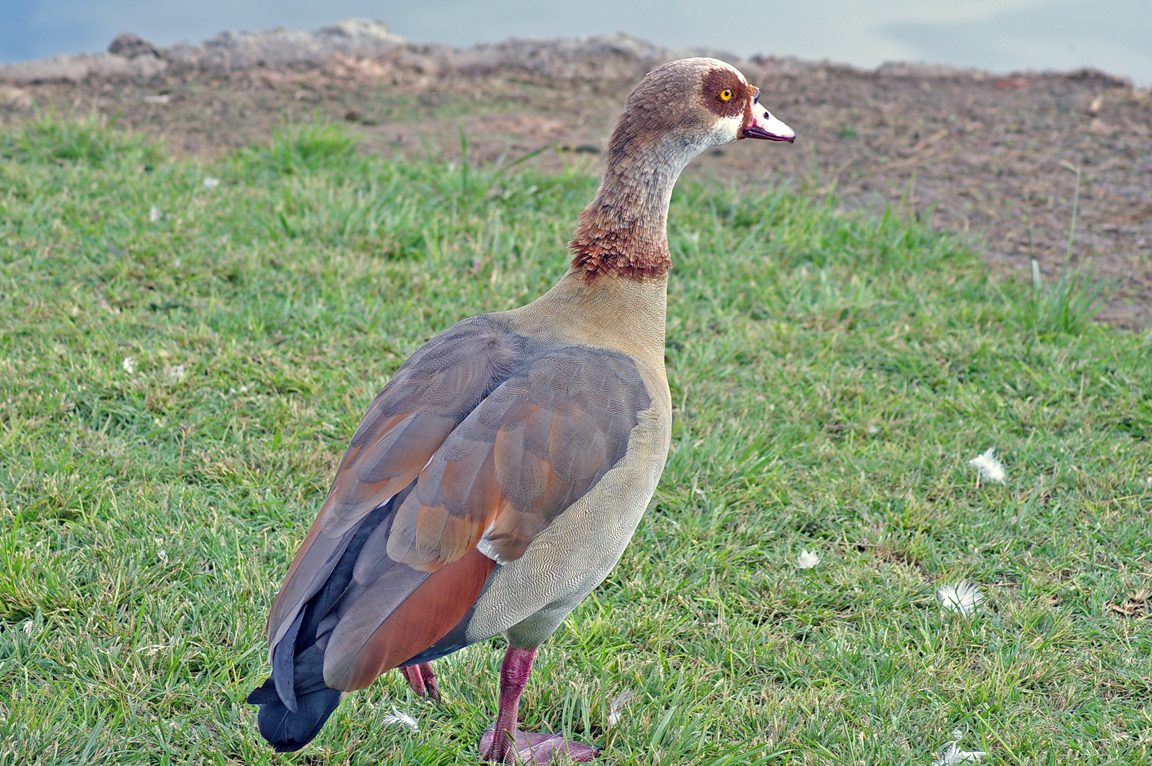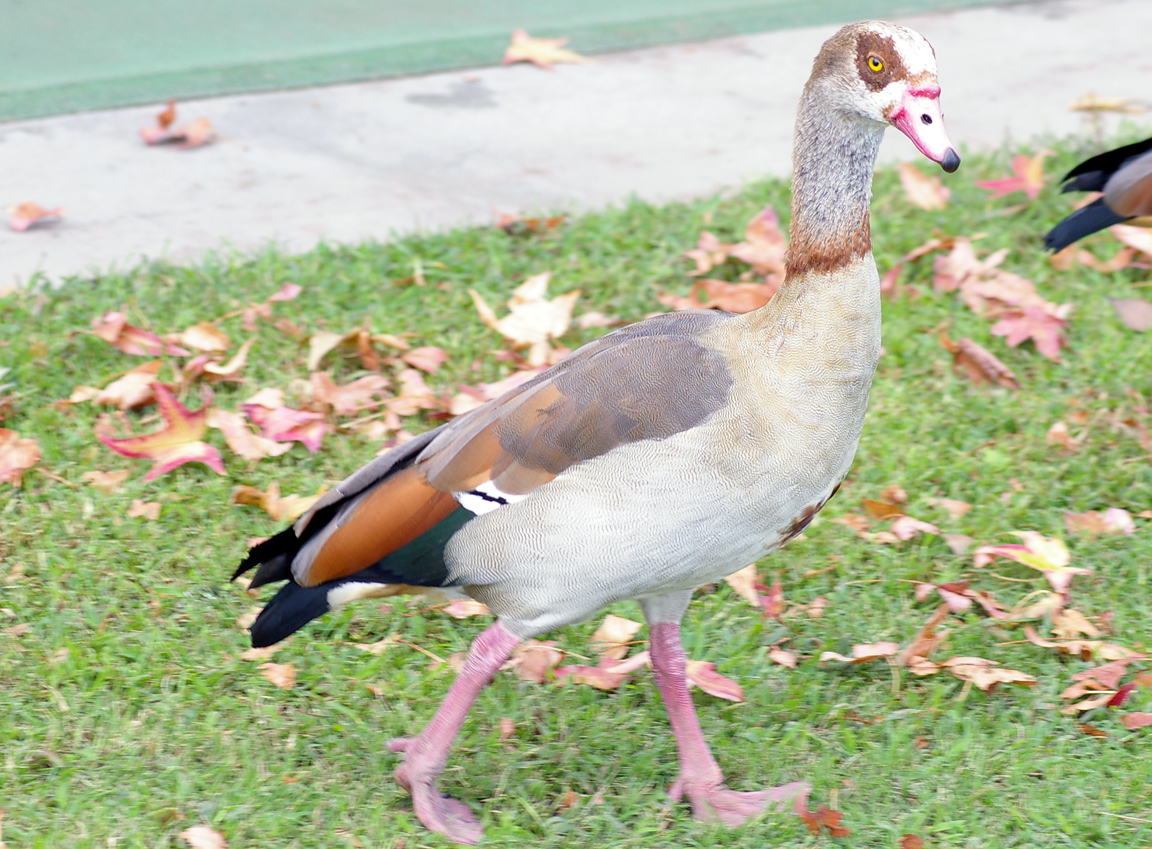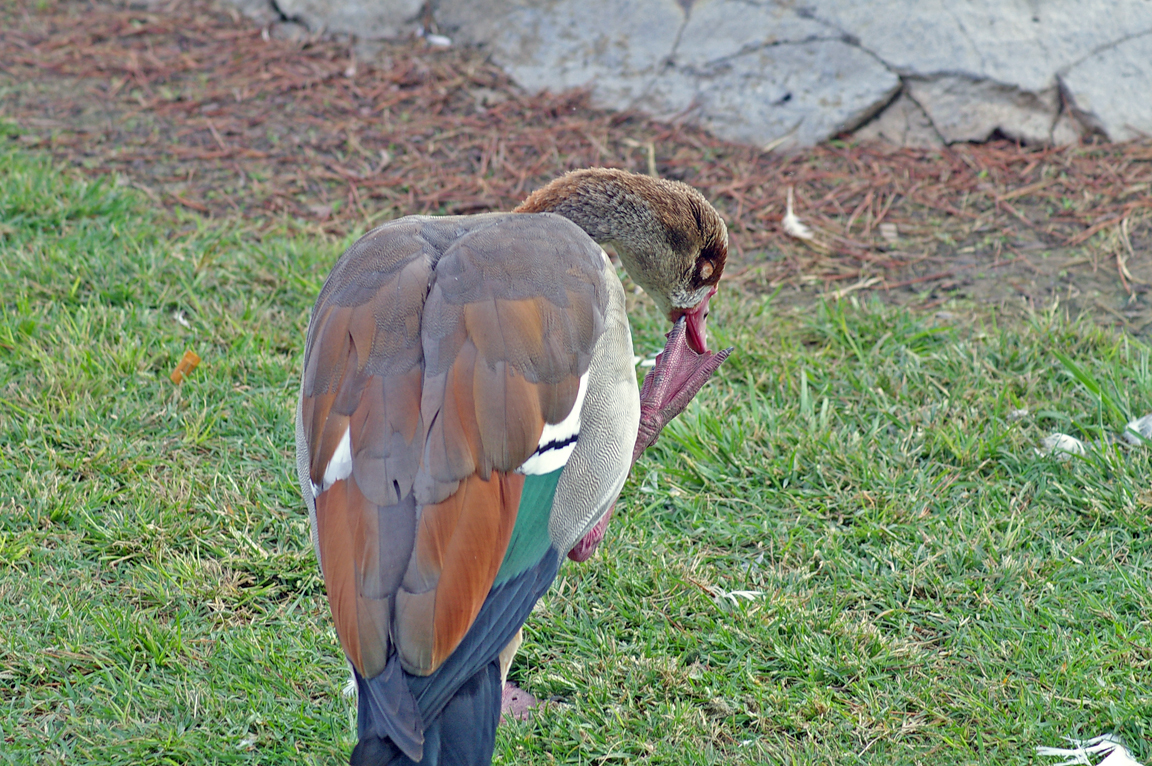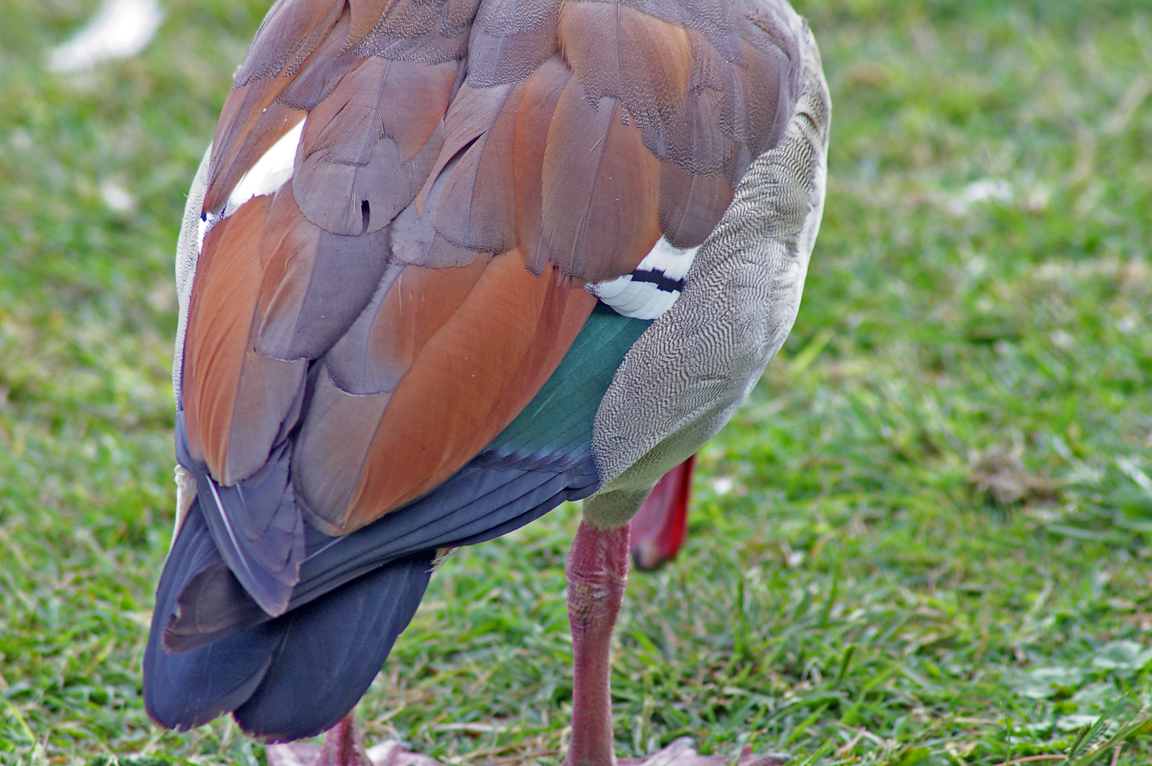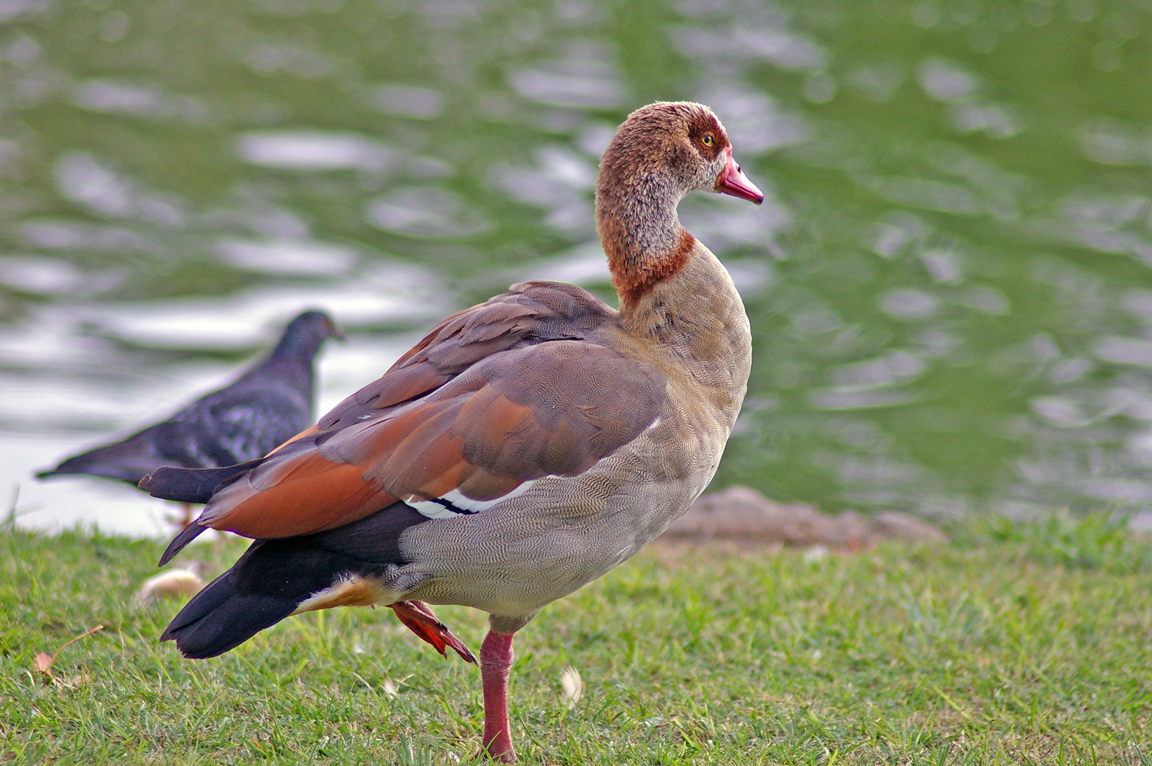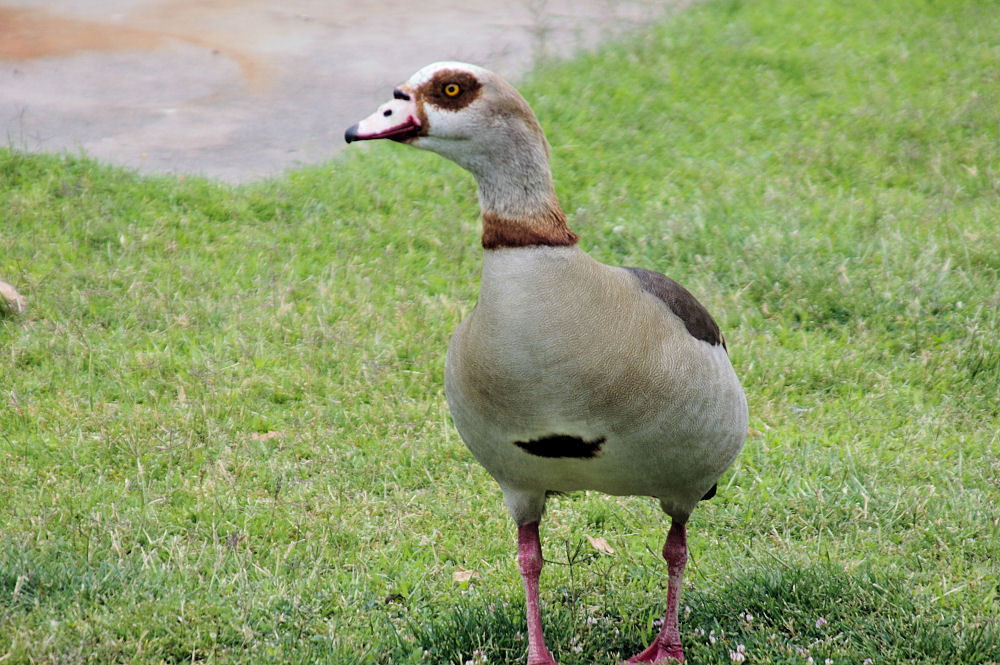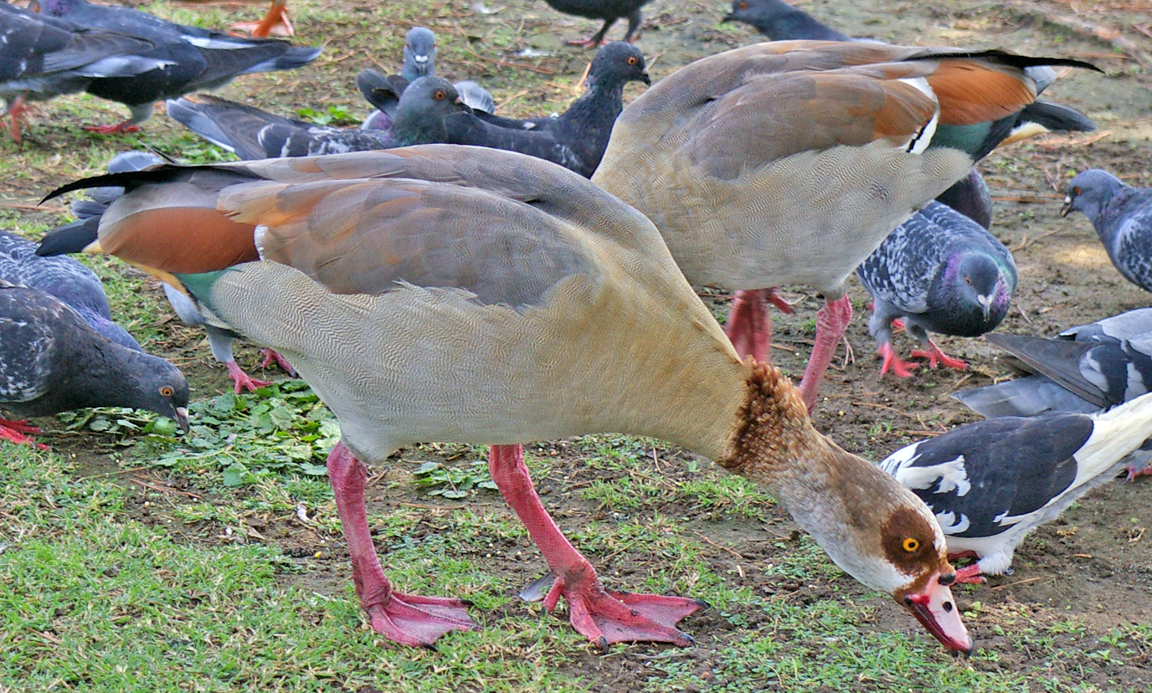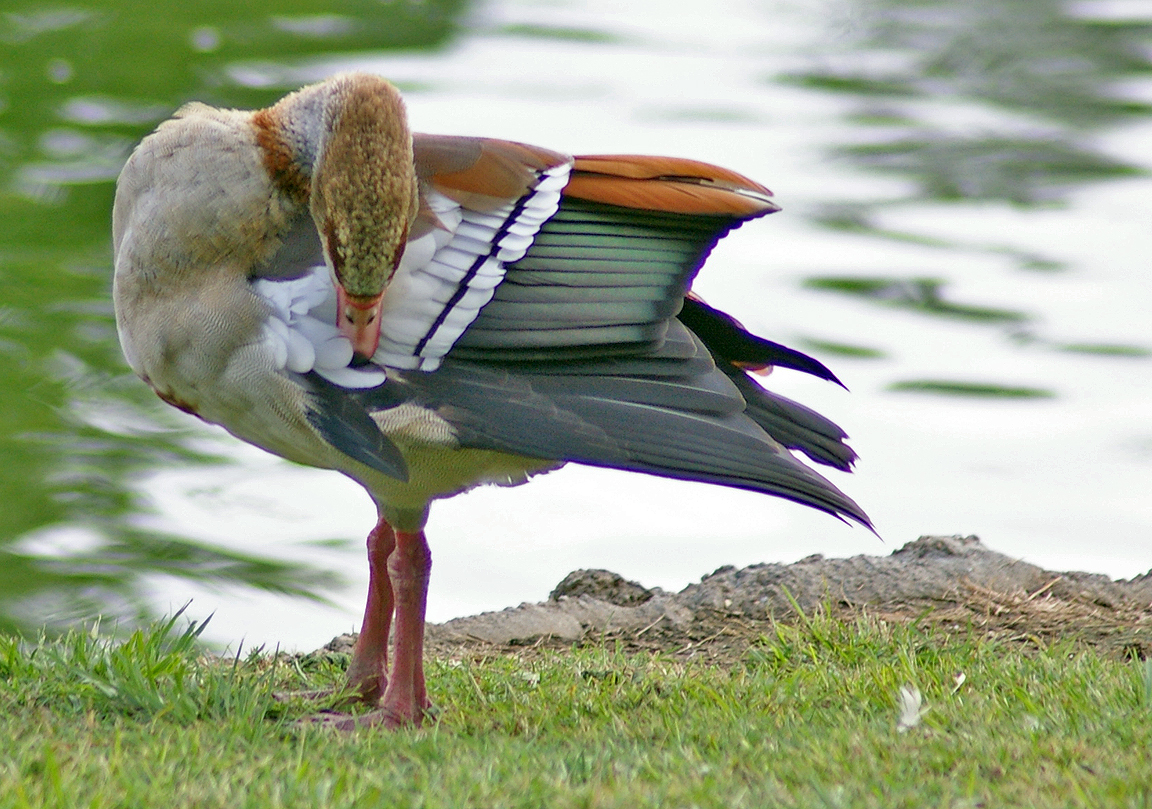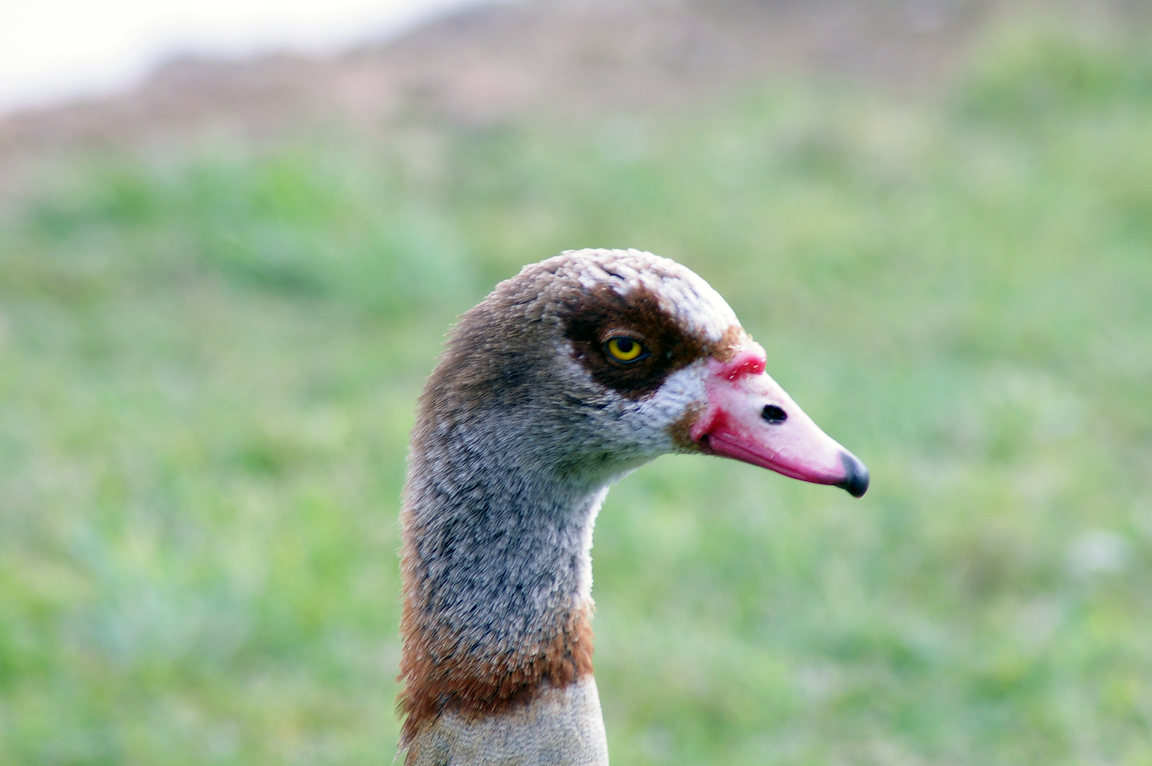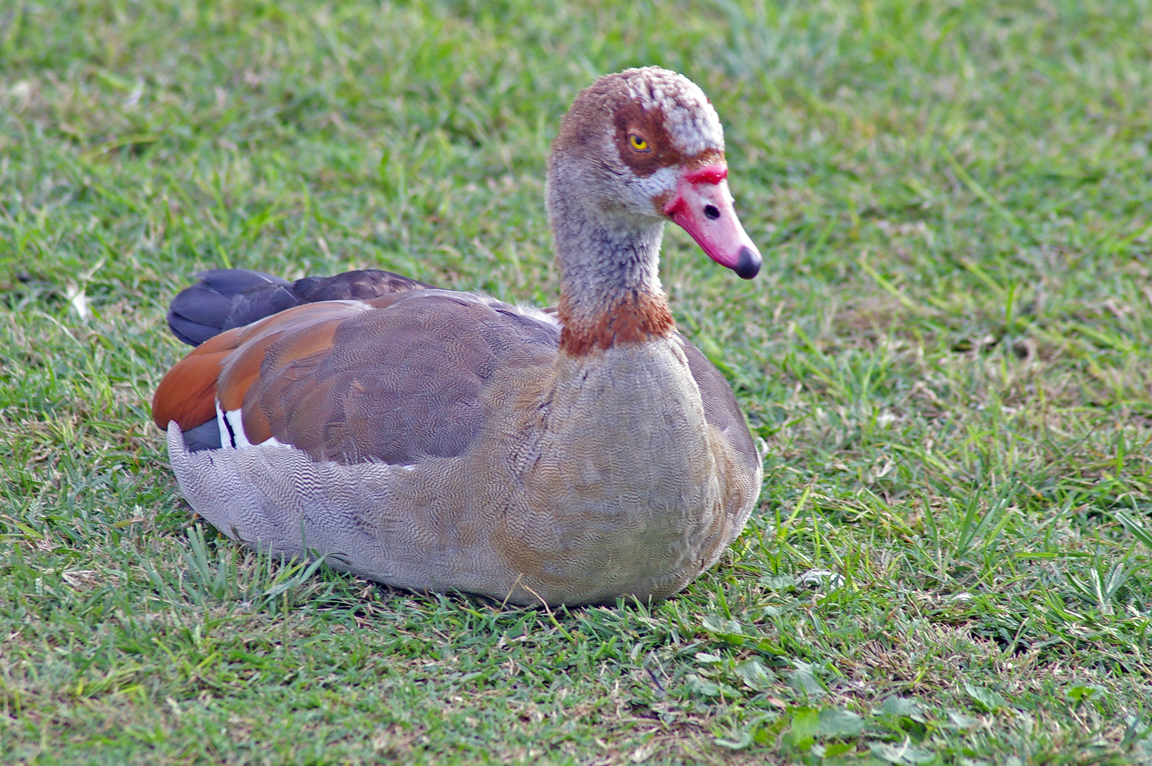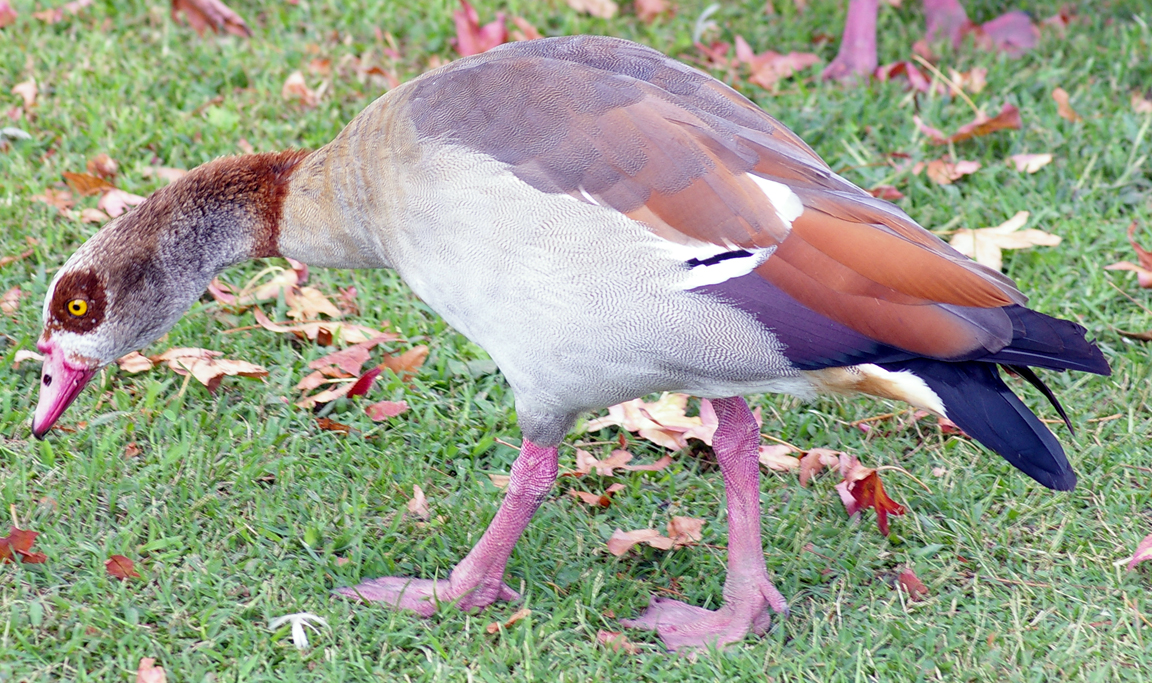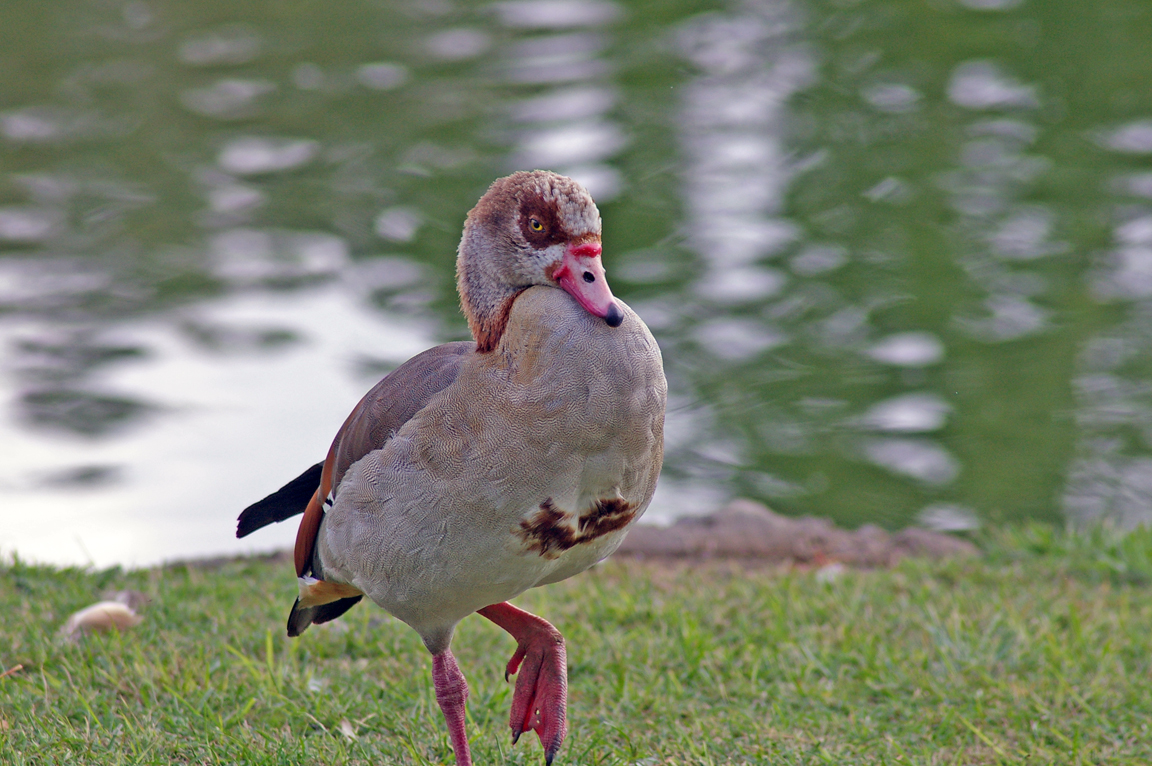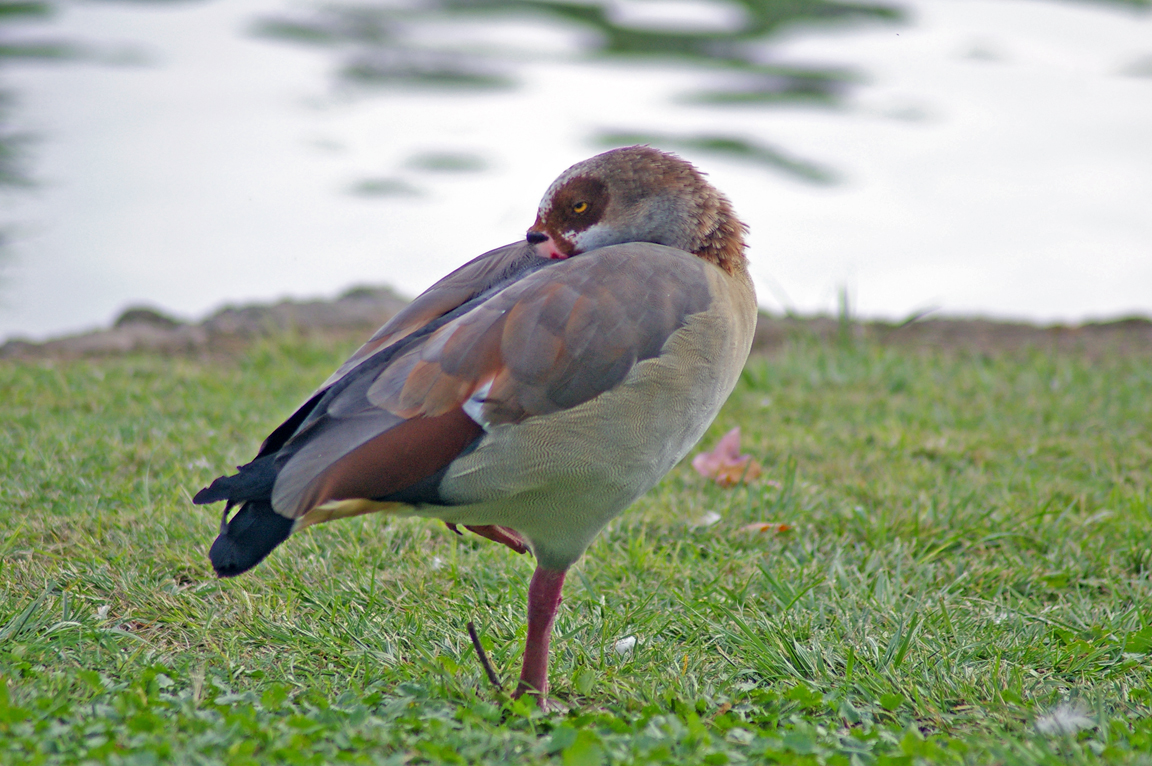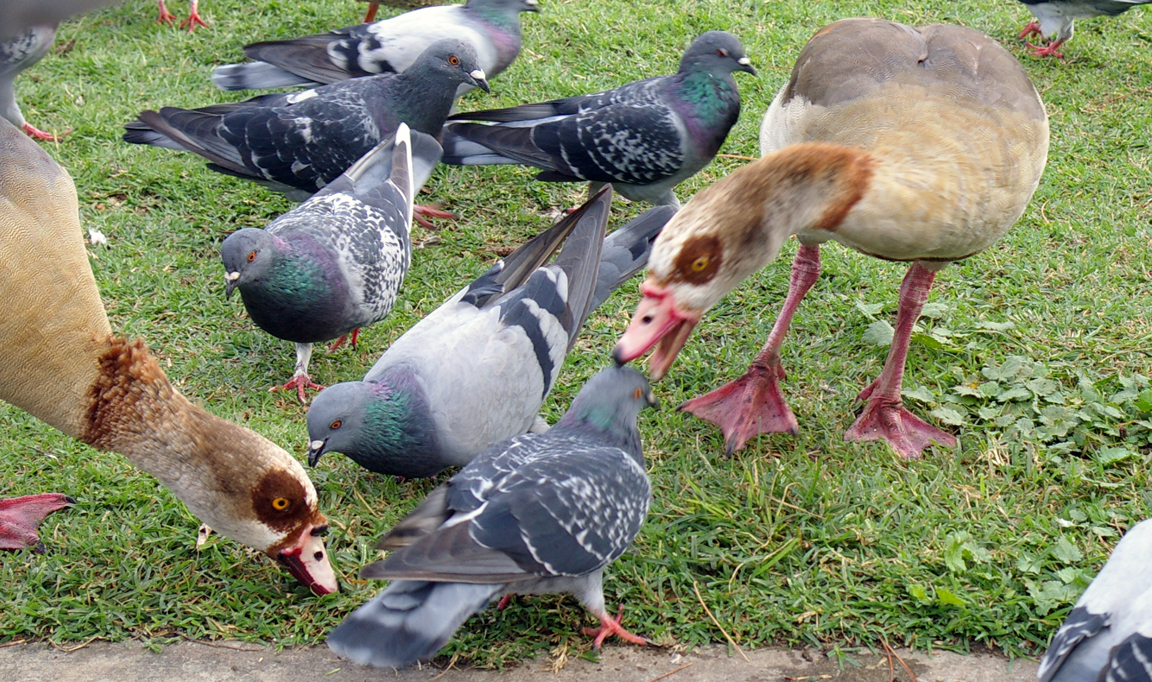|
|
|
 |
Egyptian Goose
Introduced |
| Alopochen aegyptiaca | |
The Egyptian Goose, scientifically called Alopochen aegyptiacus, is part of the duck, goose and swan family Anatidae. They are the only member of the Alopochen group that is not extinct.
Interesting Information
-
The Egyptian Goose is believed to have been sacred to the Ancient Egyptians. Artwork from that time suggests that the Ancient Egyptians had domesticated the bird.
-
Egyptian geese can be found in most open wetlands in Africa, south of the Sahara Desert as well as into the Nile Valley.
-
The lifespan of the Egyptian Goose in the wild is unknown, however one goose at the Woodland Park Zoo lived 14 years
Description
Adult Description
-
Head is brown.
-
Eye is orange.
-
Bill is pink.
-
Throat is white.
-
Back is black.
-
Legs are pink.
Sex Differences
Male and female Egyptian geese look the same, the males are only slightly larger. Trying to determine the sex just by looking at them can be very difficult. An easier way would be to listen to them. Females will make a load-honking sort of noise, while the males will make a hissing sound.
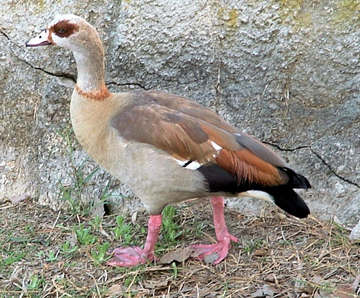
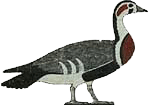
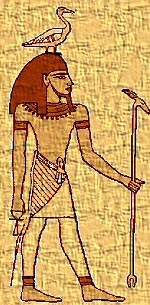
|
Habitat |
|
Prefers forests near water where it roosts in trees at night and nests in tree cavities. |
|
Behavior |
|
Feeds on vegetation by dabbling in ponds, lakes and, rivers. |
|
Food |
|
Eats insects and seeds found in grain fields and ponds. |
Taxonomy
| Kingdom: | Animalia |
| Phylum: | Chordata |
| Subphylum: | Vertebrata |
| Class: | Aves |
| Order: | Anseriformes |
| Family: | Anatidae |
| Subfamily: | Tadorninae |
| Genus: | Alopochen |
| Species: | Alopochen aegyptiaca |
Similar Species |
None |
|
Bird Sound |
|
Females will make a load-honking sort of noise, while the males will make a hissing sound. |
Videos
Egyptian Goose 1
Up close and personal
Egyptian Goose 2
Female lost a foot to a Turtle
